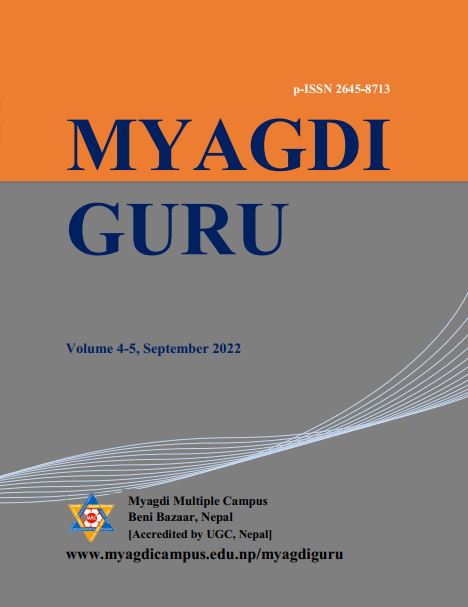Cash Transfers, Income Generation, and Livelihoods of Persons with Disabilities in Kathmandu: An Anthropological Perspective
DOI:
https://doi.org/10.3126/mg.v5i1.70622Keywords:
Persons with disability, cash transfer, livelihoodAbstract
Grounded in an interpretive philosophical perspective, the study seeks to understand the experiences of persons with disabilities (PwDs), who face extensive and severe poverty and deprivation compared to those without disabilities. For them, cash transfer and individual income provisions consider better livelihood options. This article explores to what extend cash transfer and money making through different means contributes to promote livelihood of PwDs. This exploratory study considers ethnographic data—coupled with qualitative and quantitative data collected within the timeframe of January to April 2022 in Tarakeshwor and Dakshinkali, Municipality of Kathmandu Nepal. The study assesses the contribution of social security cash transfer and other means of income and livelihood management. Key findings reveal that a notable concentration of individuals with higher socio-economic status among the surveyed cohort, with the majority positioned in the second highest equity quintile. Family structure also plays a crucial role, as 67% of disabilities are found in joint families, compared to 33% in nuclear families. Additionally, 65% of disabilities were acquired later in life, primarily due to diseases (86%) and accidents (13%). The analysis of socio-economic conditions shows no significant association between the type of identity card (red or blue) and factors such as house ownership, equity quintile, or main source of income. This suggests that the issuance of these identity cards is not influenced by these socio-economic factors. This concludes PwDs have encountered structural barriers and bitter experience in public space while fulfilling requirement for cash transfers access and money making. Money received either from the cash transfer or own generation is likely to limited requirement. The experiences of PwDs highlight challenges related to denial and discrimination, both in public spaces and personal interactions.
Downloads
Downloads
Published
How to Cite
Issue
Section
License

This work is licensed under a Creative Commons Attribution 4.0 International License.
This license enables reusers to distribute, remix, adapt, and build upon the material in any medium or format, so long as attribution is given to the creator. The license allows for commercial use.




